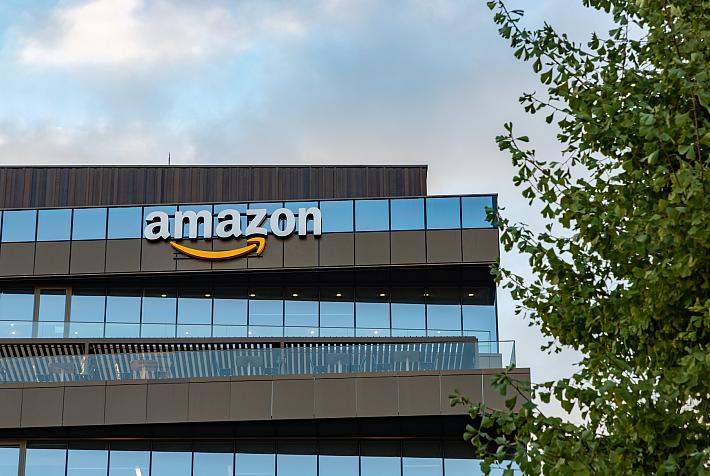Press Release: Dentons - Lessons & trends of the New Dynamic

From June through October 2020, Dentons Romania convened working breakfasts with more than 30 top management of local and multinational companies active in banking, real estate, tech, healthcare, energy, agriculture, entertainment, logistics and retail. The concept of these gatherings was for a carefully curated roster of business leaders to join together with Dentons partners in order to have a look into what the future may hold for each of us in terms of challenges and opportunities in light of the complex and uncertain times we are facing. It is what we at Dentons call the “New Dynamic”.
Over the course of these fascinating exchanges, four aspects emerged as key qualities that successful companies need to possess in order to survive Covid and emerge even stronger, according to some of the top business leaders in Romania.
- Adaptability: Businesses that could not evolve their established ways found themselves ill-adapted for the transformed environment caused by Covid.
- Flexibility: Those businesses that were flexible enough to switch providers of products or services and to meet the increased demand for existing products were able to not only stem their losses but increase sales.
- Agility: Businesses that have proved most agile in deciding and acting prospered in the context of rapidly changing laws and opening/closing borders.
- Attentiveness: Management that was keenly attuned and closely monitoring developments were able to identify and quickly make corrections.
As to the pandemic’s actual effects on our world, the primary driver has been an acceleration of existing long-term trends, particularly in places like Romania, where many of these developments were years behind more developed countries.
- A lasting impact on the way we work. Hybrid and flexible working arrangements (e.g., on-site working on particular days, work from home on other days) are here to stay. And with the quality of tech infrastructure, working remotely can now mean in another town or another country or even another continent. With remote working a viable option for so many more jobs, there will be an expansion of the labor pool beyond physical vicinity, including for those with reduced ability to leave their homes, such the physically disabled and primary caregivers of young children or elderly. A reduction of travel time can result in productivity gains. On the other hand, there are negative effects that we are just beginning to grapple with, such as prolongation of working hours through the blurring of the work-life barrier, integration of new employees, efficient and effective training for juniors, decay of the culture of an organization and issues of employee safety and cost (e.g., utilities consumption at home).
- Digitalization is picking up pace, as remote working requires availability of documents, information and resources without physical presence in a particular location. This is the case in both the private sector and the public sector, and even in cultures such as Romania where there is an obsession with original documents. However, the interface behind the technology is essential, given the huge amount of data used nowadays, which must be collected and processed in a manner compliant with increasingly stringent laws (such as GDPR).
- E-commerce has boomed during the pandemic. In Romania alone, it is estimated to have increased by 32% to reach over 5 bn Euros in 2020 alone. And it is not only deliveries of books, CDs, clothes and the like from eMag, Amazon and others. The online grocery business also has reached an inflexion point; shoppers may decide not to return to stores post-pandemic to haul home by themselves cases of mineral water, laundry detergent and other heavy goods. With these changes, the first urban logistics and ghost kitchens are sprouting up in Romania.
- Technological innovation has accelerated in order to get goods and services to customers who may be locked down at home. This includes tele-medicine and fintech (to support, for example, new client intake for banks and insurance companies as branches shut down). These easily and quickly scalable products could give Romania a competitive advantage, as the country’s tech sector is among the most talented and dynamic anywhere.
- Green energy is back. While the regulatory framework and incentives (e.g., European Green Deal) were already on track before the pandemic, investor preference for renewable energy has even more firmly locked into place. Query, whether the air, water and skies in many urban areas that were under lockdown might have contributed to this momentum as citizens worldwide, saw a possible future with a healthier environment.
While these many trends do indeed appear to have accelerated due to Covid, there are also a number of unforeseen movements to which the pandemic gave birth.
- Supply chain shifts. The pandemic made companies realize that they need access to resources to back their supply chains. China, which initially was highly impacted by measures intended to slow the spread of Covid, will be the net loser, as companies become more sensitive to the need to diversify their supply chain and bring it closer to home, where possible.
- Sanitary measures will remain a concern to consumers. Although arising with COVID-related regulations, consumers will, at least for the near future, be more concerned about personal safety. The upshot may mean greater protection from the common flu and other ailments, even after Covid subsides.
- Boost to R&D. The unprecedented speed of development of a vaccine will be a shot of adrenaline in the pharma R&D sector, with a spill-over into other areas of medicine and research. We are getting close to the sci-fi scenario where doctors whip up a vaccine on the spot.
- Move away from large metropolitan areas. Because it is not possible for a greater number of jobs to be performed away from the office or factory, this may precipitate a shift of population to smaller cities and towns, thereby spreading development more evenly, as well as taking pressure off over-crowded infrastructure.
- Tele-education opens new visas. Notwithstanding the frustration for parents of having to work as co-teachers during periods of school closures, there is a sense that we are actually on to something. If children can learn from home via live video feeds during the pandemic, why not when a child is homesick for a few days? That way, valuable lessons or tests won’t be missed. Likewise, elite institutions of higher education could profit from their brands by earning tuition from students regardless of whether they are able to obtain visas or pay the costs of relocating to another country or city.
- Business travel will not disappear entirely, although it will not be at the same level as before, as CFOs notice vast savings and question whether video conferencing can replace in-person meetings. After all, large transactions have been negotiated and closed successfully during periods of restricted movement this year.
- Heads of legal have increasingly become part of upper management. As rarely before, legal is seen by business as a decision-maker and has figuratively moved into the C Suite. Legal has been forced to devise commercial, pragmatic solutions in situations where there is a lack of clarity or even contradictory provisions of law (telemedicine, surgery during lockdown, Covid 19 cases in leased office buildings).
- Investors more focused on CSR. In particular, Diversity & Inclusion have emerged as key drivers for hiring, winning new business and satisfying shareholder demands for workforces and management that look that the real world. And this, as groups that have traditionally been marginalized from business have suffered most (Black-owned businesses in the USA, women from jobs).
- Sustainability is no longer a statement, but a commitment. The Covid pandemic has accelerated the already-existing concern over the environmental and social footprint of large and small corporates alike. Sustainable finance moves into the regulatory mainstream. Investment activities that support the UN Sustainable Development Goals (SDGs), in particular taking action to combat climate, are no longer just corporate jargon, but they have risen to the level of corporate priorities.
There are some fundamental changes at a global level that have taken place in record time, while the year ahead looks equally challenging. Companies and their leaders had to adapt to the new realities in order to ensure business continuity. The post-pandemic era gave way to new opportunities and even growth in some areas. According to local business leaders, Romania is in a favorable position to gain ground on key sectors that will support long-term economic growth – transport, infrastructure, renewable energy, tech, and healthcare.
An article wrote by Perry V. Zizzi, Managing Partner, Dentons Romania (in picture).
This is a Press Release. Here you can order press releases on this site.













